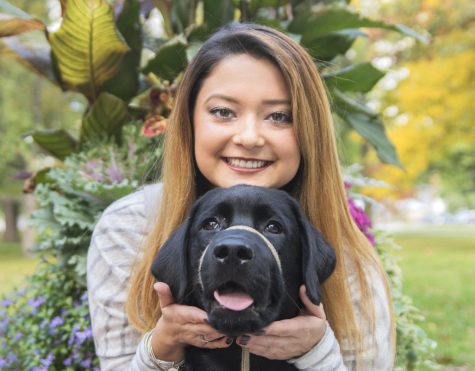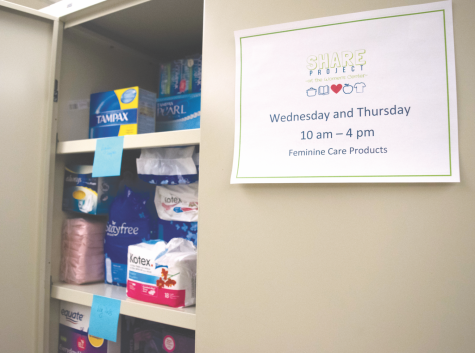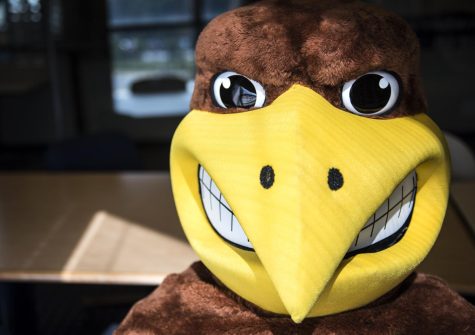Sociology club helps homeless at Kent shelter
March 22, 2010
Miller House has been serving the poor since 1985
The smell of teriyaki chicken and green beans wafted from the oven March 13 as five Kent State students cooked a meal for the Miller Community House, Kent’s local homeless shelter.
“I’ve never been homeless, but I can imagine if I was and someone made me a home cooked meal, it just shows that other people care,” said Liz Murray, vice president of the Sociological Collective, about the group’s monthly donation of food to the homeless shelter.
Miller Community House has been serving the homeless with 30-to-60-day emergency shelter in Portage County since 1985. As the only emergency shelter in Portage County for men, women and families, Miller Community House program manager Anne LoFaro said the shelter houses up to 22 residents, but can’t always meet the needs of the community.
“We’re not able to fully meet our mission with the funding we have,” LoFaro said. She said basic necessities like blankets, pillows and furniture aren’t in the budget. They also must pay for the food to feed all the residents, she said, but that can get costly, and items like fruit and vegetables are considered luxuries. LoFaro said home- cooked dinners provide stability and a great treat for those working to get back on their feet.
“It’s a full-time job getting out of homelessness and ending that cycle because there’s a lot of work that goes into that,” she said. “And these dinners give them one less thing to worry about.”
Members of the Sociological Collective, an on-campus club for anyone interested in sociology and community service, use their own money to go out and buy food once a month. They spend just a few hours cooking and take the food over to the Miller Community House. Murray said this helps to ease the strain on the budget and allows the shelter to buy more things taken for granted by others like towels and fruit.
So many organizations ask Kent State students to volunteer or donate money, but both LoFaro and Murray said the homeless in Kent should be treated as a top priority.
“It’s in our own backyard,” Sociological Collective president Kerry Fields said. “I don’t want to say don’t give money to Haiti, but we have kids who are starving here.”
Murray, a senior sociology major, said being homeless is hard enough, but these dinners say to the residents that they aren’t alone and not only is the community supportive, but is willing to help them in any way.
“It’s an unfortunate epidemic in such a fortunate country that we are,” LoFaro said about the growing homelessness both locally and nationally. “And I think a lot of people have a lot of misconceptions about what homelessness is.”
LoFaro said that the average age of a homeless person in the United States is 9, not the stereotypical image most get when they think of a homeless person. Many times, she said, the people who walk through the Miller Community House’s door seeking refuge are single mothers who never imagined they’d be in a homeless shelter.
“There are those people who have been born in poverty,” Fields said. “And it’s not a factor of laziness, they don’t have the opportunity to go to school and get a four-year degree.”
Murray said the Sociological Collective cooks dinners anyone can do on any scale for those less fortunate, but there have been unexpected benefits for the group.
“We just thought that if we can all get together to have fun, we can get together and do something that’s helpful and we enjoy doing,” she said about how these Saturdays not only help the homeless, but the group’s camaraderie as well.
Kent State students don’t have to only give food; they can donate time, money or other items like cleaning products, paper towels, and diapers that are desperately needed. LoFaro said volunteers could cater their skills or experience to what they need. Graphic designers, education majors, English majors who can write pamphlets and even those who can do simple home repairs can gain experience for their future while helping the struggling in Kent, LoFaro said.
Junior sociology major Michael Nihiser helped cook the last meal for the first time and is excited to continue the tradition in the future.
“You have to feed the less fortunate, and I’ll help in any way I can,” Nihiser said. “If they can’t do it themselves, somebody’s got to.”
Contact arts and science reporter Kathryn McGonagle at






















